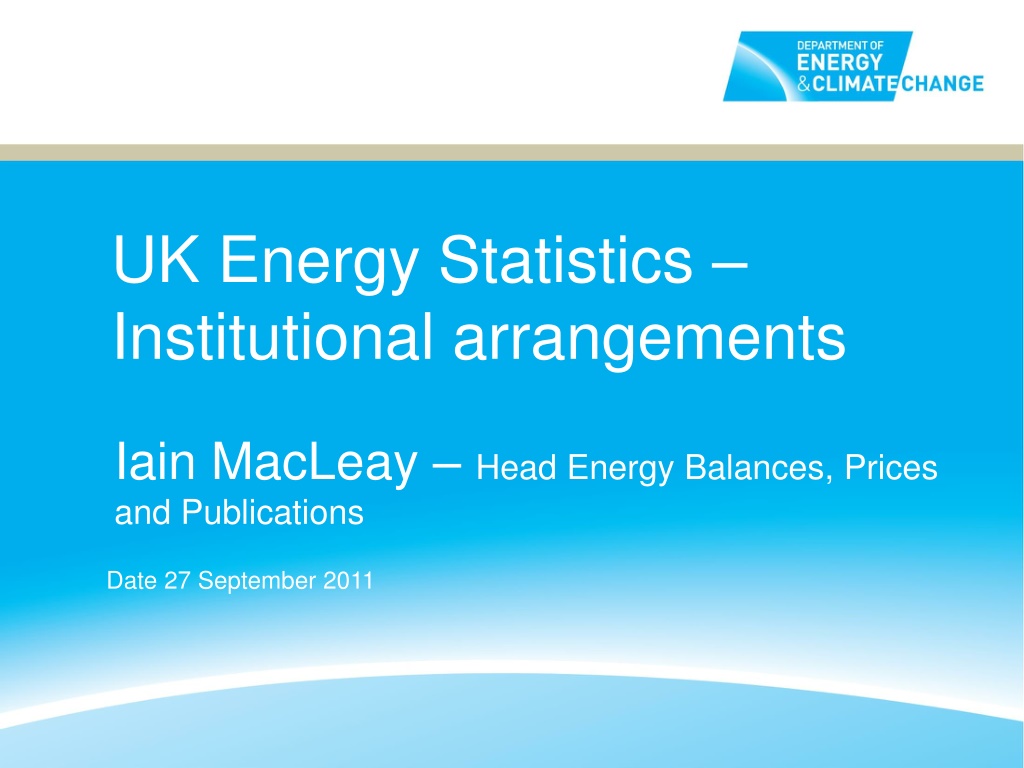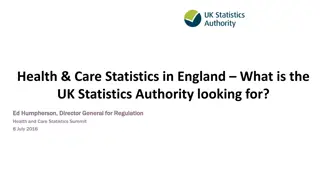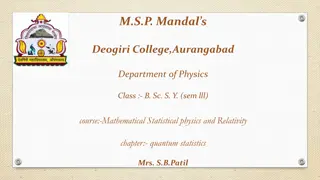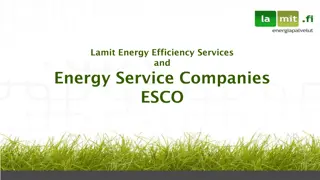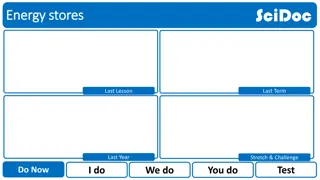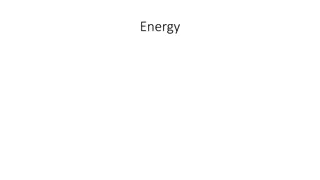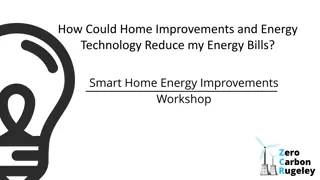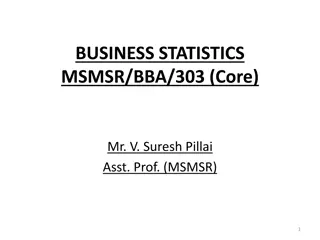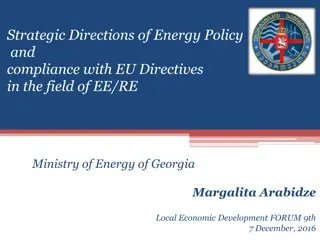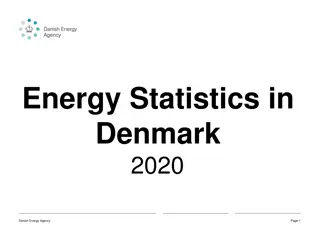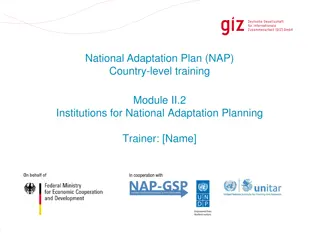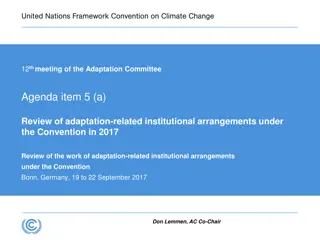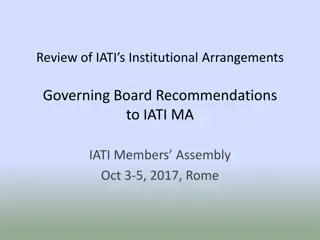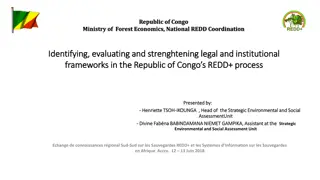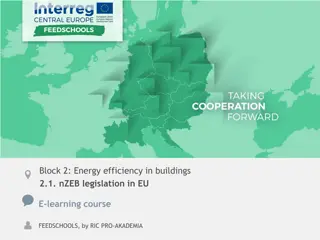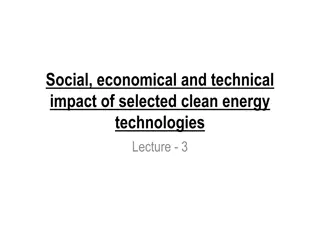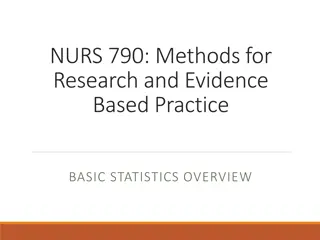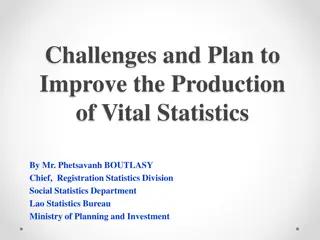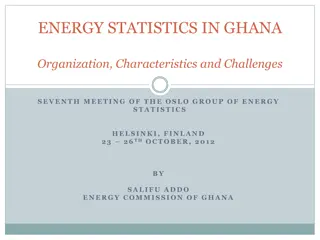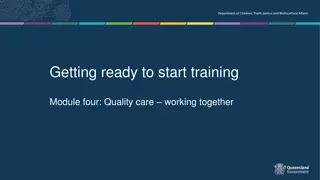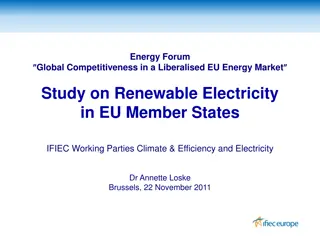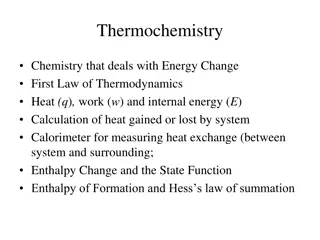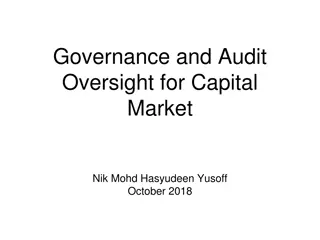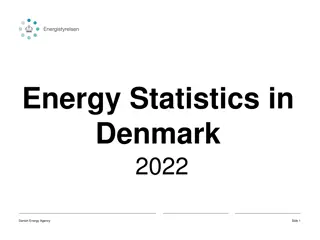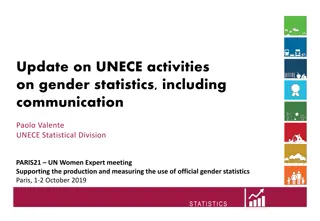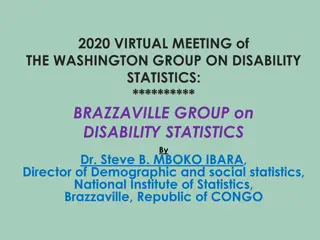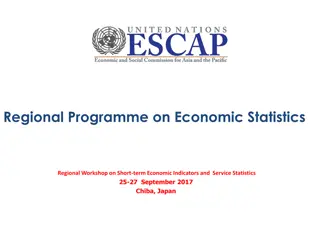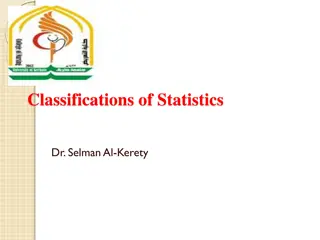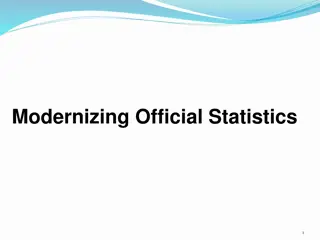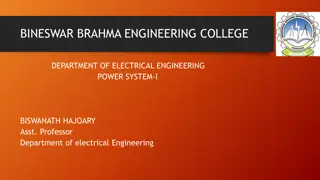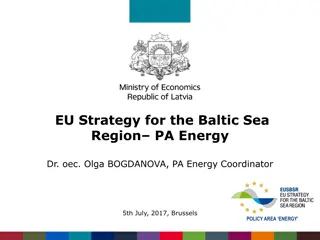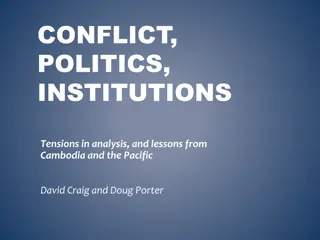UK Energy Statistics Institutional Arrangements Overview
In the UK, energy statistics are managed through a decentralized system involving organizations like the Office for National Statistics (ONS) and the UK Statistics Authority. The Code of Practice ensures integrity, impartiality, and user engagement in statistical reporting. DECC (Department of Energy and Climate Change) has a dedicated statistical organization focusing on energy data collection, analysis, and publication. The structure includes a Chief Statistician and statisticians specializing in various energy sectors.
- UK Energy Statistics
- Decentralized System
- Code of Practice
- DECC Statistical Organization
- Data Collection
Download Presentation

Please find below an Image/Link to download the presentation.
The content on the website is provided AS IS for your information and personal use only. It may not be sold, licensed, or shared on other websites without obtaining consent from the author. Download presentation by click this link. If you encounter any issues during the download, it is possible that the publisher has removed the file from their server.
E N D
Presentation Transcript
UK Energy Statistics Institutional arrangements Iain MacLeay Head Energy Balances, Prices and Publications Date 27 September 2011
Contents 1. UK decentralized statistical organisation 2. Code of practice 3. DECC statistical organisation 4. Legal framework 5. Advantages / disadvantages
UK statistical organisation 1. UK statistics are generally decentralized a. Office for National Statistics (ONS) in centre, responsible for collection and publication of statistics related to economy, population and society at both national and local level, b. Ministerial Departments responsible for collection and publication of their own data. 2. UK Statistics Authority a. Provides governance for ONS, b. Independent scrutiny (monitoring and evaluation) of all official statistics.
Code of practice Published January 2009, consistent with core Civil Service values: Integrity putting the public interest above organisational, political or personal interests. Honesty being truthful and open about the statistics and their interpretation. Objectivity using scientific methods to collect statistics and basing statistical advice on rigorous analysis of the evidence. Impartiality acting solely according to the merits of the statistical evidence, serving equally well all aspects of the public interest. Users all users: government, business, public will have equal rights to data/services at the same time.
Code of practice 8 principles 1: Meeting user needs 2: Impartiality and objectivity 3: Integrity 4: Sound methods and assured quality 5: Confidentiality 6: Proportionate burden 7: Resources 8: Frankness and accessibility 3 protocols 1: User engagement 2: Release practices 3: The use of administrative sources for statistical purposes http://www.statisticsauthority.gov.uk/assessment/code-of-practice/index.html
DECC statistical organisation 1. DECC has Chief Statistician and Head of Profession (HoP) 2. Team of around 30 a. Data collection/publication b. Policy analysis and monitoring 3. Some statisticians out-bedded within policy teams
DECC Statistics Organogram Duncan Millard Head of Team Head of Profession for Statistics 0300 068 5051 Energy Statistics Warren Evans Statistician, Grade 7 Emergency oil meausres, inc.oil stocking policy, oil & upstream gas 0300 068 5059 Alison Judd Statistician,Grade 7 Coal, electricity, downstream gas & CHP 0300 068 5043 Iain Macleay Deputy Director, Grade 6 Energy balances, prices & publications 0300 068 5048 Vacant Grade 6 Energy efficiency and Renewables Damon Wingfield Statistician, Grade 7 Fuel poverty statistics 0300 068 5058 James Hemingway Higher Statistical Officer,HEO Coal, electricity, downstream gas & CHP 0300 068 5042 Mita Kerai HigherStatistical Officer,HEO Coal, electricity, downstream gas 0300 068 5044 Laurent Ortmans Higher Statistical Officer, HEO Emergency oil stocks 0300 068 5052 Alison Colquhoun Higher Statistical Officer Fuel poverty analysis Kevin Harris HEO Energy balances & publications 0300 068 5041 Laura Williams Assistant Statistician Fuel poverty statistics & domestic prices 0300 068 5045 Julian Prime Statistician, Grade 7 Energy consumption, regional energy, Heat 0300 068 5054 Clive Evans Manager, HEO Upstream oil & gas 0300 068 5040 Paul Gaught Higher Statistical Officer, HEO Downstream oil 0300 068 5038 Jo Marvin HEO Energy prices 0300 068 5049 Mary Gregory Statistician, Grade 7 NEED 0300 068 5856 Chris Mckee Higher Statistical Officer Fuel poverty analysis in review team Ruhi Babbar Student Coal, electricity, downstream gas & CHP 0300 068 5046 Anwar Annut Statistical Officer Energy balances & publications 0300 068 5060 Will Rose Stephen Oxley Higher Statistical Officer Energy efficiency 0300 068 5025 Vacant Chris Michaels EO Electricity, downstream gas 0300 068 5050 Susan Lomas AO Energy prices 0300 068 5047 Higher Statistical Officer Energy consumption & regional energy 0300 068 6909 AS/AE/Higher Statistical Officer Econometrics Charanjit Ransi Assist manager, EO Downstream oil 0300 068 5055 Sebastien McClay Student Oil & gas 0300 068 5053 Clive Sarjantson AO Administrative tasks, Energy statistics team 0300 068 5056 Daniel Proctor Student Energy balances, prices & publications 0300 068 5057 Tom Rouse Student Energy consumption & regional energy 0300 068 5037 Vacant Higher Statistical Officer Heat (ICCEE) ICCEE - 2 (g7, as/SStO) on GD, 2 in ONNE (g7, hsto), 1 (ssto, smart)
Legal framework 1. Range of legislation available includes a. UK Stats of Trade Act 1947 b. UK Energy Act 1976 c. UK Gas Act 1986/1995 d. UK Electricity Act 1989 e. EU regulation on Energy Statistics 844/2010 f. Other EU directives and decisions 2. Mixed approach taken to data collection, some surveys compulsory under above powers, other data collected on voluntary basis.
Advantages 1. Closer to policy helps statisticians understand wider policy issues 2. Help with policy formulation 3. Better chance to influence administration systems 4. Closer contact with data providers (energy companies) 5. More knowledge of user needs 6. All statisticians are part of the GSS (Government Statistical Service)
Disadvantages 1. Perceptions on trust a. But have code of practice and UK Stats Act, which govern behaviour 2. Lose some economies of scale
Other issues 1. Work closely with Government Statistical Colleagues 2. Movement of Statisticians between Departments (Statisticians the Government Statistical Service) 3. Data collection and analysis sub-contracted both ways between DECC and ONS (DECC collect producer prices from energy industry, ONS run surveys of energy prices paid by industry) 4. DECC statistics, like all government statistics subject to assessment and designation process (audit) to confirm produced in line with code of practice 5. Issues of trust around pre-release access (currently 24 hours in UK)
Key benefits of non NSI solution Evidence based policy making Closeness to key policy customers Closeness to energy supply companies Involvement with Ministers Breadth of work undertaken by statisticians But we still maintain National Statistics focus Head of Profession, not Ministers, responsible for release dates and quality of outputs
